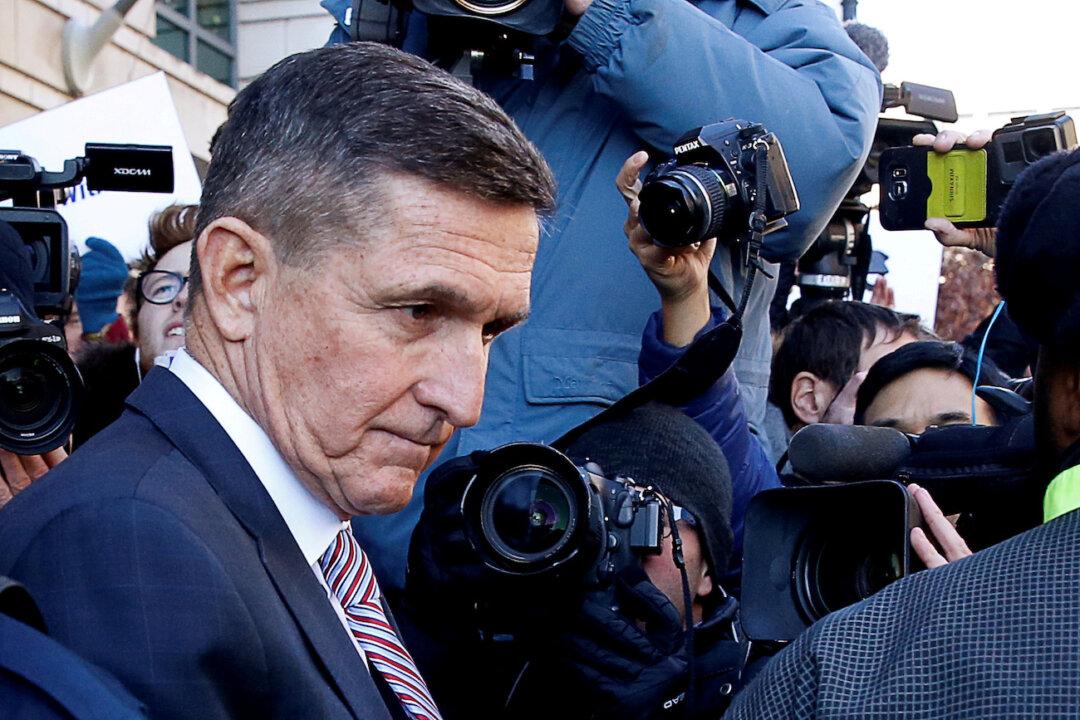A federal judge on Wednesday issued an order appointing a retired judge with advising whether former Trump administration national security adviser Lt. Gen. Michael Flynn should face an additional criminal contempt charge for perjury.
U.S. District Judge Emmet Sullivan, who presides over Flynn’s criminal case, appointed John Gleeson, a former federal judge in New York, as an amicus curiae—or friend-of-the-court—to “present arguments in opposition to the government’s Motion to Dismiss,” and to “address whether the Court should issue an Order to Show Cause why Mr. Flynn should not be held in criminal contempt for perjury.”




